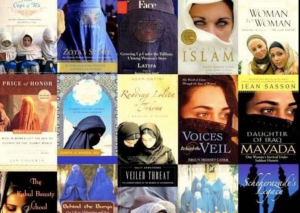It appears that two Iranian women have become the first Muslim women to scale Mount Everest. This impressive feat will no doubt be heralded around the Muslim world, and for good reason. But do many of us really have the right to be proud of them?
Everyone will applaud and take great pride in their accomplishment. And we’ll all cite this as an example of how liberated Muslim women are, contrary to all the slanders against Islam that one hears today.
But how many of us will take notice of the fundamental contradiction between those sentiments and the continuing efforts to defend Islamo-Victorian attitudes which delegitimize any such enterprise on the part of women? How many of us will admit to ourselves that *we* wouldn’t have supported them in their quest because of all our hang-ups?
The list of "traditional" taboos which these bold and strong women broke is long. It includes many problematic assumptions about women’s roles in society that many in the Muslim community still defend tooth and nail, and in spite of increasing evidence to the contrary. Now, I don’t know how they dressed or what the other details of this ascent were, nor do I want to speculate about them personally, but it’s appropriate to ask some general questions.
If hijab is the most important aspect to a woman’s public presence (and that is preciously the implication of much so-called Islamic thinking today), how can she be climbing a mountain?!? Shouldn’t we be condemning her?
Think about it. Can a woman safely scale Everest while fretting about whether any of her hair is visible? Can she do so while obsessing about her legs or arms showing (both of which remain taboo in the Muslim community, regardless of the weather or circumstances)? Think somebody can climb a mountain wearing a shalwar khameez, much less a jilbab?
Wait, it gets worse. What if there is a man beneath her on the trail? Is she not dishonored by this compromising position? And won’t that sight risk causing fitnah and fatality on the mountainside? (I’m reminded of the fretting of late about the dire consequences of female imams bending over in front of men.)
And then there’s the question of whether a "respectable" Muslim woman would wander around remote mountains with Sherpas and assorted rich, mostly non-Muslim men from the four corners of the globe (i.e., other climbers)? Also, is it legitimate for a Muslim woman to leave her family behind not only to go on a long excursion into the wilderness, but to risk life & limb for the sake of a thrill? (These questions are never asked of men, of course, but that’s another discussion.)
[Note: My beef here is not with hijab. Or modesty. Or family values. Quite the contrary. The problem is not those traditional values or Muslims’ respect for them, but rather the selective and sometimes neurotic application of these values in the case of women, to the point where a woman becomes defined by her clothing rather than her actions and beliefs.]
I ask this question not to be snarky, but to highlight how our priorities are often out of whack. Which is more important in this situation, a woman mountain climber’s safety or remaining completely " modest" (i.e., covered to the maximum extent possible)? If we say the former, then we need to admit that these norms about women’s dress which we cling to obsessively and which we treat as universal are, in fact, not universal. We’ll have to admit that the requirements of modesty depend on context, and that there is more to a woman’s soul than her hijab.
Or we could just be consistent and say those women should’ve just stayed home and let the men do the mountain climbing.
Many of us won’t see the contradiction and will keep these conflicting ideas in hermetically sealed compartments of our minds, but perhaps this is how reform really happens. The real world sometimes develops quite independently of people’s theories about "tradition" and has a tendency to confound scholar’s neat categories. One day, people who’ve long advocated purdah in various forms wake up and realize that Muslim women are scaling mountains, hijab-less, perhaps in shorts, and in the sight of men, and that human civilization hasn’t come to an end. Then they’ll be forced to reevaluate all their black & white assumptions about gender.
Maybe then they’ll stop treating women like clothing racks.











